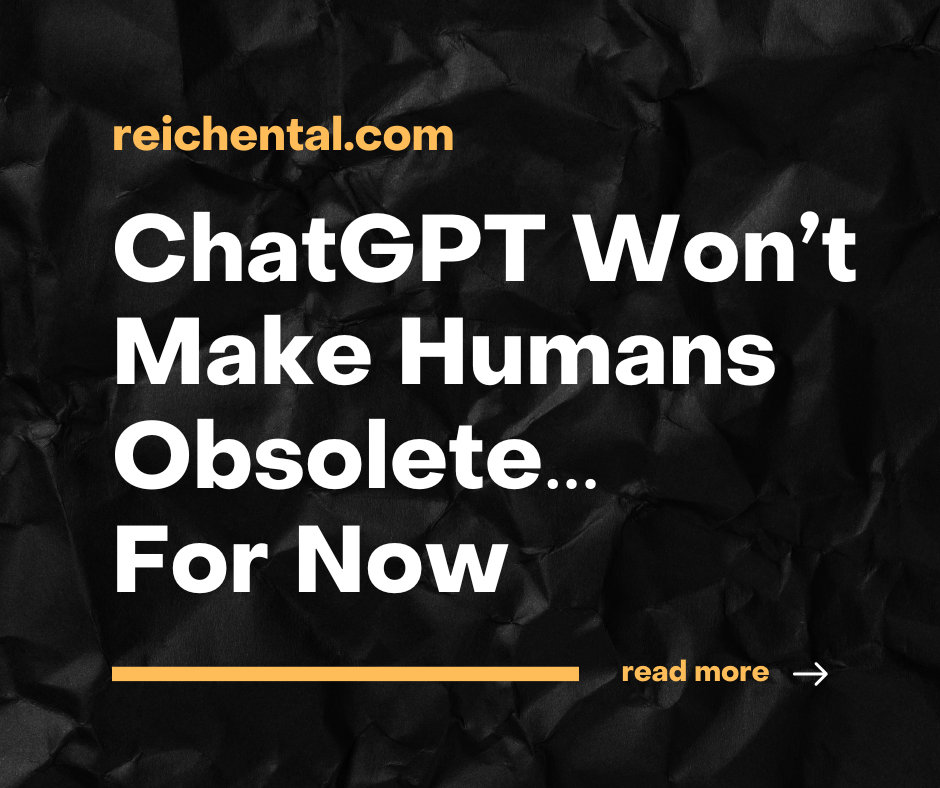ChatGPT Won’t Make Humans Obsolete…For Now
ChatGPT is demonstrating the power of artificial intelligence (AI) to perform tasks that were once considered the exclusive realm of human creativity. In seconds it appears to create original content, software code, PowerPoint presentations, legal contracts, and more.
Have we reached the point where AI begins the rapid elimination of millions of human jobs?
AI Didn’t First Appear in November 2022
It may seem that the recent introduction of ChatGPT is the result of sudden and surprising breakthroughs in AI. In reality, the remarkable capabilities of ChatGPT and all the applications being built on top of it are the cumulative product of decades of work. AI first emerged in the 1950s, and today AI is an essential enabler of search engines, fraud detection, social media, chatbots, and smart assistants.
That said, it’s clear that ChatGPT is a notable shift in the possibilities of AI.
Surely human obsolescence can’t be far behind.
Automation has been a characteristic of the world since the first industrial revolution in the mid-1700s. Logically, 300 years later there should be few jobs left for humans. In fact, the opposite is true. Today, despite the huge increase in population, unemployment is at record lows in most countries. In the US in early 2023, there were almost 10 million openings — two available positions for every person looking for a job. Despite years of rapid automation, the position we find ourselves in today is unintuitive: we don’t seem to have enough people.
If AI Wins, Do We lose?
It would be easy to believe that AI is a zero-sum game: if AI does the job, a human loses a job. This may be an overly simplistic view of what will happen. Certainly, AI will have long-term impacts that are difficult to anticipate now, but in the medium term, AI is likely to augment human work, making it more meaningful and even creating new opportunities. We are already seeing demand for skills that help integrate and leverage AI in existing industries, from data scientists to prompt engineers.
What each of us must do is to understand what AI means in the context of our work and then evolve accordingly. Education will be more important than ever to avoid a new digital divide where some of us thrive in a world of AI while others struggle.
In the medium term, I’m more optimistic than most on the potential for a better future alongside AI. However, in the long term, the disruptive impacts of AI will require us all to have our eyes wide open.
This short article was originally published in the Menlo College Magazine Summer 2023 edition.


